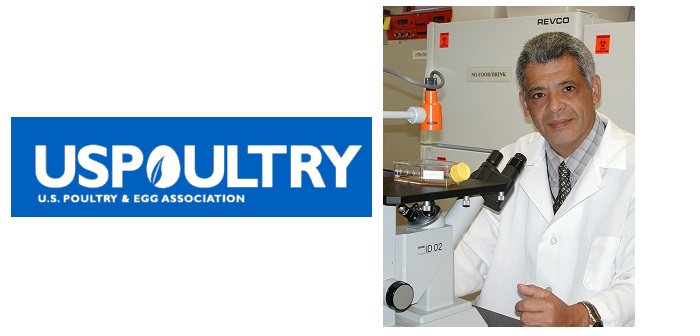Research results providing “practical new information” on how to control the feed-related spread of Avian Influenza Virus (AIV) during an outbreak have been published by the US Poultry and Egg Association (USPOULTRY).
Quoting the findings of a recently completed research project, carried out by Dr Haroldo Toro of Auburn University College of Veterinary Medicine, Alabama, USPOULTRY said that it had been found that commercially available and approved formaldehyde-based products “very effectively and quickly inactivate AIV in poultry feed”.
The work was prompted by poultry industry concerns that the possible survival of AIV in non-pelleted feed may be a contributing factor to the spread of the virus during an outbreak. This was certainly one of the issues raised by reports from the US Department of Agriculture, following last year’s US outbreak of high pathogenic AI.
This prompted USPOULTRY to provide $550,000 (£425,000) in emergency funding in October 2015 to support further avian influenza research and communication, including Dr Toro’s feed-related project.
“Although pelleting of feed effectively inactivates any potential AIV in feed, not all poultry feeds are pelleted,” said USPOULTRY, adding that Dr Toro (pictured above) had therefore tested the effectiveness of AIV inactivation in chicken feed and ground corn in response to the use of Termin-8 and Finio.
The results gained so far indicate that treating feed with Termin-8 achieves an AIV inactivation effect within one hour of application.
The Auburn University project is the first part of the USPOULTRY-backed “fast track” AIV research programme to produce results.


